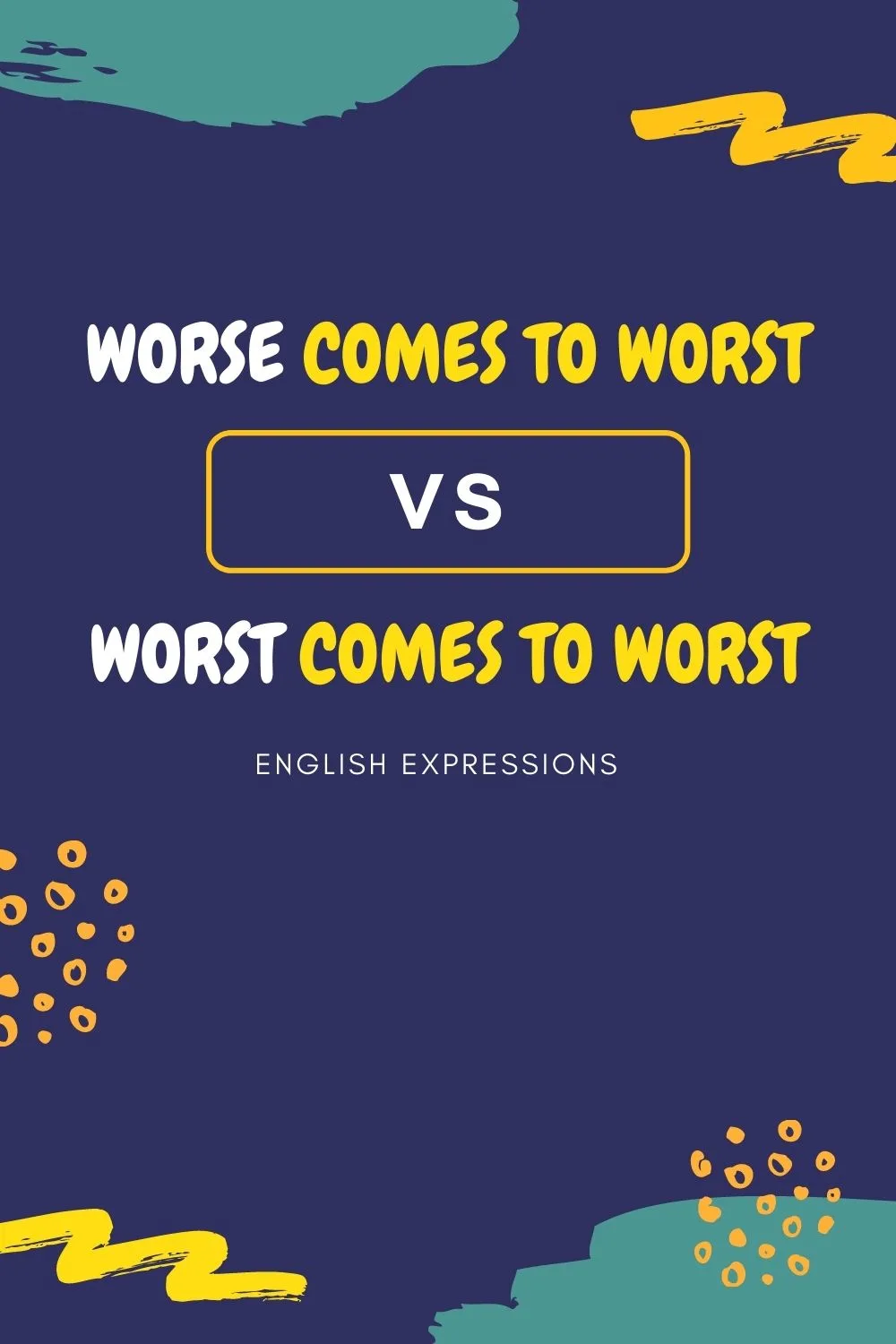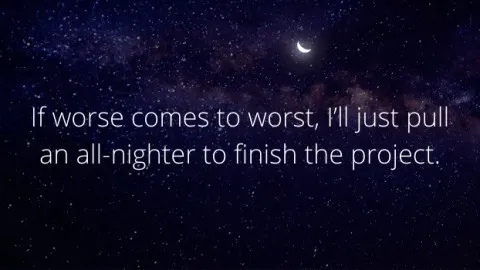“Worse comes to worst” or “worst comes to worst”
“Worse comes to worst” and “worst comes to worst” are both correct. In fact, “worse comes to worst” is a bit more logical. It means “should the worst-case scenario happen.” Yet, the original expression was, “if the worst come to the worst,” which later changed to “if worst comes to worst.”
Ergo, you could use either one, and you would be correct.
Both of the above examples are equally valid.
“If the worst come to the worst” — Evolution
As mentioned earlier, the original expression was “if the worst come to the worst.” This is an old idiom that has been around since the 1600s.
One of the first known usages can be found in Thomas Nashe’s 1596 pamphlet entitled, “Have With You to Saffron-Walden.”
In it, Nashe wrote, “if the worst come to the worst, a good swimmer may do much.” For reference, he was comparing dying from drowning to dying from burning.
Now, there are a couple of things to notice here. First, there is the use of the definite article “the.” Second, rather than writing “come” in the present simple form, the original idiom had it in the subjunctive.
In the expression, “come to” meant “to result in.” For instance, when you say, “the endeavor came to nothing,” you are effectively saying that the endeavor resulted in nothing.
So, the expression could be rewritten as “if the worst results in the worst.”
If that still doesn’t make much sense to you, then consider that the first “worst” looks at the “worst” theoretical possibility, while the second “worst” discusses the “worst” practical possibility.
So, rewriting the original idiom again, we get “if the worst theoretical possibility results in the worst actual possibility.”
Does it make sense yet?
Anyway, these two main differences between the original and current forms are the definite article and the subjunctive form of the verb. Over time, these elements changed, and the expression became “(if) worst comes to worst.”
And, with the passage of time, the more logical “worse comes to worst” gained popularity.
Why is “worse comes to worst” more logical?
Think of it this way: things can exist on a spectrum from “best” to “worst.”
As things approach the “worst” part of the spectrum, they have to pass by “bad” and “worse” first.
So, it makes sense to say that things have moved from “bad” to “worse” or from “worse” to “worst.”
Ergo, “worse comes to worst” makes sense.
Nevertheless, the Cambridge Dictionary makes an interesting distinction.
It points out that “if the worst comes to the worst” is popular in British English, whereas “if worse comes to worst” is more of an American variant.
To be more accurate, both “if worse comes to worst” and “if worst comes to worst” are acceptable in American English.
This might give you an idea of when to use each option.

Worse comes to worst — Examples
Here are a couple of examples of the expression “Worse comes to worst” in action:
- If we can’t book the main venue for the conference, we’ll look for another location. Worse comes to worst, we’ll hold it online.
- I hope to catch the 5:30 train home, but if worse comes to worst, there’s another one at 7:00.
- I’m applying for jobs in my field, but if worse comes to worst, I’ll take a temporary gig to pay the bills.”
- I’ve studied hard for this exam Worse comes to worst, I’ll retake it next semester.
- We’re waiting for the test results. Worse comes to worst, we’ll consult specialists and explore all treatment options.
- I’ll try to bake a homemade lemon cake for the party. If worse comes to worst, I’ll buy one from the store.
- I want to invite all my friends to the picnic. Worse comes to worst, if it rains, we can move it indoors.
Worst comes to worst — Examples
Here are a couple of examples of the expression “Worst comes to worst” in action:
- I have enough savings to survive at least a few months. Worst comes to worst, I’ll move back in with my parents.
- I’ll try to fix the plumbing issue myself. Worst comes to worst, I’ll call a professional plumber.
- We should arrive in time for the meeting. Worst comes to worst, we can join via video call.
- The weather looks good for the outdoor concert. Worst comes to worst, we’ll just have to cancel it.
- I’m planting multiple types of crops this year. Worst comes to worst, at least one variety should succeed.
“Worse comes to worse” — The only wrong option
Even though both “worse comes to worse” and “worst comes to worst” are correct, there is one third option that people have been using, and it is completely incorrect. It is “worse comes to worse.”
The problem with “worse comes to worse” is that it makes little to no sense, which is why it is a mistake.
You might argue that “worst comes to worst” doesn’t make much sense either, but the use of the superlative clearly highlights that we are talking about the worst case scenario.
However, the use of the comparative in “worse comes to worse” does not perform the same function.
Why do native people make this mistake?
“Worse” and “worst” are phonetically very similar, making it easy to confuse the two. This is also why a lot of people are uncertain whether it’s “worse comes to worst” or “worst comes to worst.”
If you really want to see how phonetically similar words can confuse people, take a look at the word “expresso.” In actuality, there is no such word, and the correct word is an “espresso” coffee.
However, as espresso and expresso are phonetically similar, it’s not that much of a leap to go from one word to another, especially if the speaker isn’t paying attention to how each word is pronounced.

Hey fellow Linguaholics! It’s me, Marcel. I am the proud owner of linguaholic.com. Languages have always been my passion and I have studied Linguistics, Computational Linguistics and Sinology at the University of Zurich. It is my utmost pleasure to share with all of you guys what I know about languages and linguistics in general.

